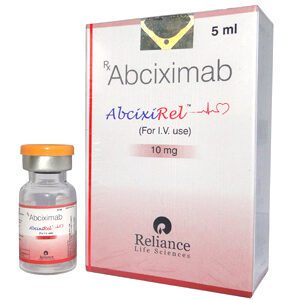What is Capecitabine Cape Tablets IP 500 mg?
Capecitabine Cape Tablets IP 500 mg is an oral chemotherapy medication used to treat certain types of cancer. It contains Capecitabine, a prodrug that gets converted into 5-fluorouracil (5-FU) in the body, which works by interfering with the growth of cancer cells and slowing their spread. It is commonly used in the treatment of breast, colorectal, and gastric cancers.
💊 What is the Use of Capecitabine 500 mg Tablets?
Capecitabine is used for the treatment of:
-
Colorectal cancer (colon or rectal cancer)
-
Metastatic breast cancer
-
Gastric (stomach) cancer
-
Sometimes used in combination with other chemotherapy drugs or after surgery (adjuvant therapy)
✅ Benefits of Capecitabine Cape Tablets IP 500 mg:
-
Oral administration eliminates the need for hospital-based IV chemotherapy
-
Effectively targets and kills rapidly dividing cancer cells
-
Can be used in combination with other anticancer drugs for enhanced results
-
Offers better patient convenience and flexibility
-
Demonstrated efficacy in advanced and metastatic cancers
⚠️ Side Effects of Capecitabine 500 mg Tablets:
Like all chemotherapy drugs, Capecitabine may cause side effects. These vary from mild to severe.
Common Side Effects:
-
Diarrhea
-
Nausea and vomiting
-
Fatigue and weakness
-
Hand-foot syndrome (redness, swelling, or pain in palms and soles)
-
Loss of appetite
-
Mouth sores
Serious Side Effects (consult doctor immediately):
-
Severe diarrhea or dehydration
-
Liver dysfunction
-
Chest pain or irregular heartbeat
-
Low blood cell counts (anemia, neutropenia, thrombocytopenia)
📝 Important Notes:
-
Take exactly as prescribed, usually within 30 minutes after a meal
-
Blood tests are required to monitor liver function and blood counts
-
Not suitable for pregnant or breastfeeding women
-
Inform your doctor of any existing conditions or ongoing medications
🧊 Storage:
-
Store below 25°C, in a dry place
-
Keep out of reach of children and away from direct sunlight
-
What is Capecitabine Cape Tablets IP 500 mg used for?
It is used to treat breast, colorectal, and gastric (stomach) cancers, often after surgery or in metastatic stages. -
How does Capecitabine work?
Capecitabine is converted into 5-fluorouracil (5-FU) in the body, which blocks DNA production in cancer cells, stopping their growth. -
How should I take Capecitabine 500 mg tablets?
It should be taken within 30 minutes after a meal, with water, exactly as prescribed by your oncologist. -
Can Capecitabine be taken at home?
Yes, Capecitabine is an oral chemotherapy, allowing patients to take it at home under a doctor’s supervision. -
What are the common side effects of Capecitabine?
Common side effects include diarrhea, fatigue, nausea, vomiting, mouth sores, and hand-foot syndrome (redness/swelling of hands and feet). -
What is hand-foot syndrome?
A side effect causing pain, redness, swelling, or peeling of skin on palms and soles. It requires dose adjustment or medical care. -
Can Capecitabine affect my blood counts?
Yes. It can lower white blood cells, red blood cells, and platelets, increasing the risk of infection, anemia, or bleeding. -
Is Capecitabine safe during pregnancy?
No, Capecitabine can harm an unborn baby. Effective contraception is required during treatment and for a period after. -
Can Capecitabine interact with other medicines?
Yes, it may interact with blood thinners (like warfarin), phenytoin, and others. Inform your doctor of all ongoing medications. -
What should I do if I miss a dose?
Skip the missed dose and take the next one at the scheduled time. Do not double the dose. Inform your doctor if multiple doses are missed. -
How long is Capecitabine treatment usually given?
Treatment is given in cycles (e.g., 14 days on, 7 days off), and the total duration depends on cancer type, response, and tolerance. -
What signs of serious side effects should I watch for?
Contact your doctor immediately if you experience severe diarrhea, chest pain, difficulty breathing, unusual bleeding, or fever. -
Can I drink alcohol while on Capecitabine?
Alcohol may irritate the stomach or liver, so it is best to limit or avoid alcohol during treatment. -
Is Capecitabine a replacement for IV chemotherapy?
In some cases, yes. It provides an oral alternative to intravenous 5-FU, especially in colorectal or breast cancer. -
How should Capecitabine tablets be stored?
Store at room temperature (below 25°C), in a dry place, away from moisture and direct sunlight.






Reviews
There are no reviews yet.